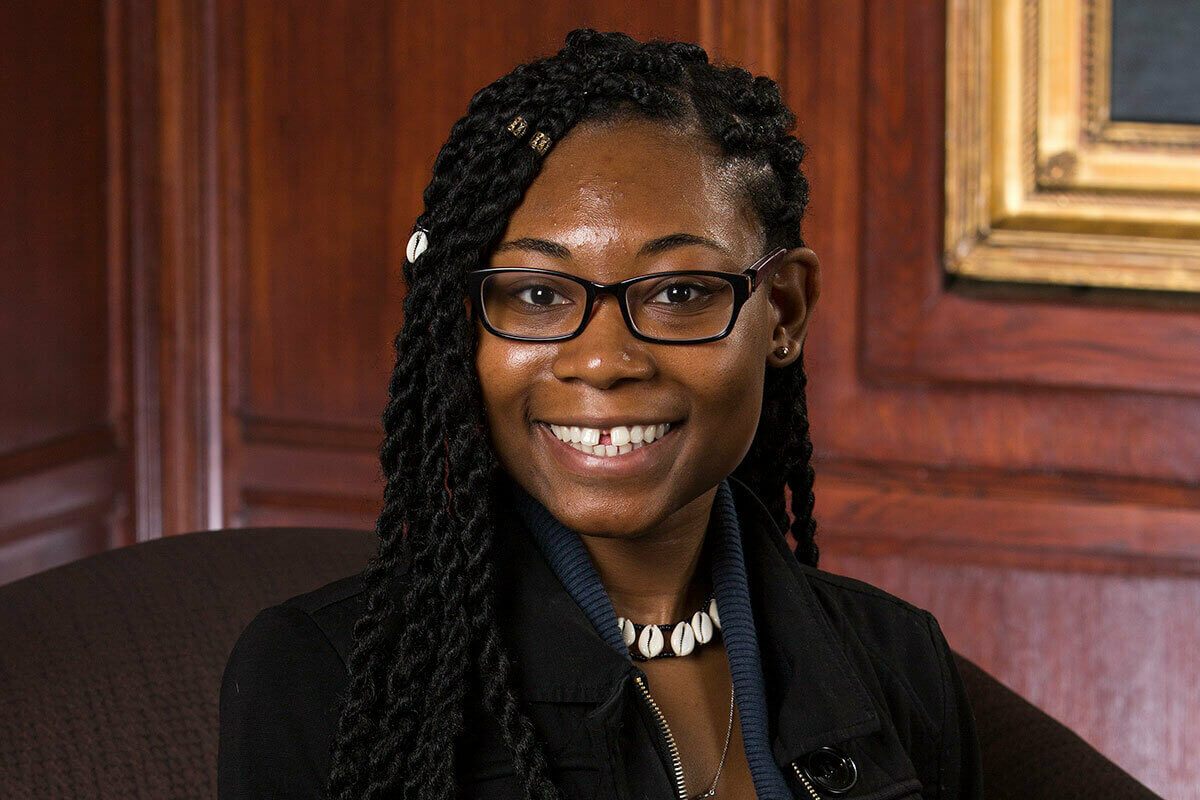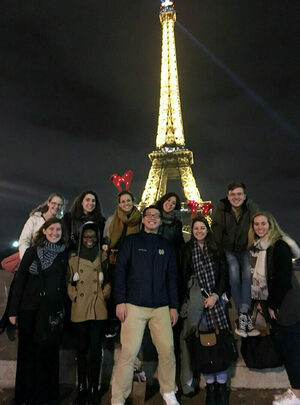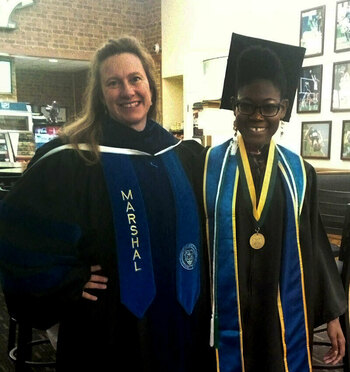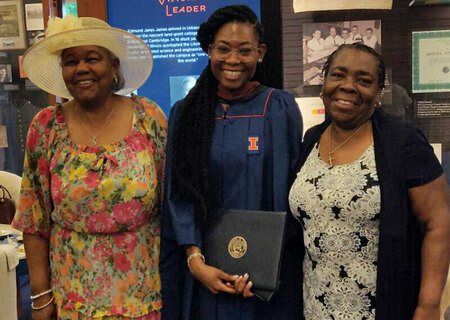
Maps don’t just show us where things are located — for urban planner Asha Barnes ’18, they also reveal stories about who we are and how we live our lives.
Majoring in anthropology and Africana studies at Notre Dame allowed Barnes to explore humanity and identity using both quantitative and qualitative methodologies. She’s now employed these research techniques in her career, continuing to give back by telling the stories of those who have been silenced.
“It was through my education that I was able to put to words my own experience as an Afro-American woman living in this country,” said Barnes, now an associate planner at the Chicago Metropolitan Agency for Planning. “It was through my education at Notre Dame that I was able to learn the skills that I have now to collect and tell the stories of other people and advocate for communities that I’ve worked with.”
“It was through my education at Notre Dame that I was able to learn the skills that I have now to collect and tell the stories of other people and advocate for communities that I’ve worked with.”
A sense of empathy

Barnes was always intrigued by language and culture, especially seeing how they had shaped her own identity as the daughter of a Jamaican immigrant mother and African American father on the South Side of Chicago.
Though she began Notre Dame on a pre-med track, Barnes discovered that anthropology and Africana studies allowed her to study her long-held passions and explore her identity in a meaningful and contextualized way.
“Those classes were very important to me, fostering my own sense of self — my identity,” she said.
She found that anthropological research techniques — from surveys to interviews to participant observation (studying a community or situation through immersion) — allowed her to better comprehend peoples’ everyday lives and motivations.
“It’s through anthropology that we begin to open our minds to different cultures, different peoples, different truths, different walks of life,” she said. “It fostered a sense of empathy in me that I continue to carry today.”
The value of mentorship
During her time at Notre Dame, Barnes worked closely with many professors who helped her gain research experience and discover her interests.
Alex Chávez, the Nancy O’Neill Associate Professor of Anthropology, was one of Barnes’ most pivotal mentors, serving as the advisor for her senior thesis on religiosity in Jamaica.

“He was a huge influence on the work that I was doing at Notre Dame and continues to be an influence now in the way that I practice anthropology,” said Barnes, who received funding from the Department of Anthropology to travel to Jamaica for her research. “He definitely is, for me, the standard of what anthropologists should be.”
The Doan Scholar also worked alongside Department of Africana Studies faculty Maria McKenna and Stuart Greene in conducting research about education in South Bend and working with middle school students in the city on building soft skills.
The experience inspired her to spend a year doing full-time service work in public education through City Year following her graduation. Barnes, who had attended Chicago Public Schools, returned to the district to teach seventh- and eighth-grade students at Deneen Elementary School.
She soon found that her two majors offered insight into the lives of her students and how she could enable success for them in the classroom.
“It really gave me an understanding of how to practice education differently, taking into account Afro-American experiences,” she said.
After City Year, Barnes wanted to continue working with youth. She spent a year working as a program coordinator for Spark, a nonprofit which works to improve children’s futures by connecting them with a variety of career exploration resources, leveraging partnerships with companies like Google and LinkedIn.
Being mentored by Notre Dame professors who were dedicated to improving the lives of those who had been disadvantaged or disempowered had inspired Barnes to do the same.
“Working with them created a greater sense of urgency to serve people and advocate for communities that don’t necessarily have the power to advocate for themselves,” she said.
“I come from a community that’s been divested in and that’s been impacted by the legacy of segregation in Chicago, and it doesn’t have a champion and is lacking in power. I think of it now as my duty to come back and give back, and fortify those communities that have been left behind.”
Advocating for communities
During her sophomore year, Barnes had served as a team anthropologist with the Bowman Creek Educational Ecosystem, a coalition that brought together resources from Notre Dame and the City of South Bend. The team worked to provide revitalization and environmental solutions to flooding and contamination around Bowman Creek in the southeast side of the city, a racially diverse and economically divested area.
Witnessing how the team worked with the community to address public health made Barnes interested in urban planning and its potential to foster healthy neighborhoods.
“I come from a community that’s been divested in and that’s been impacted by the legacy of segregation in Chicago, and it doesn’t have a champion and is lacking in power,” she said. “I think of it now as my duty to come back and give back, and fortify those communities that have been left behind.”

That experience and others — including a Youth Empowerment and Urban Environments course with Greene and McKenna — ultimately inspired her to complete a master’s degree in urban and regional planning at the University of Illinois at Urbana-Champaign, adding technical skills to her portfolio such as making maps using computer software, analyzing census data, and telling stories through data visualization.
The historical knowledge Barnes gained from her undergraduate education proved invaluable for understanding how urban planners can serve community needs.
“If you look at the state of American cities, especially Chicago, and how segregated it and other cities are, I’m able to utilize my knowledge of the African diaspora, of African American culture, to better assist or advocate for those communities,” Barnes said.
Barnes is already using anthropological methodologies in her new role at the Chicago Metropolitan Agency for Planning, a government organization working with municipalities throughout northeast Illinois.
Since her start in June, Barnes has been working primarily on two projects: ensuring that all municipalities are compliant with the American with Disabilities Act and helping the community of Austin on Chicago’s West Side implement its quality-of-life plan to uplift the neighborhood.
These projects require Barnes to utilize the research skills that she developed from her anthropology degree.
“Urban planning is a lot of data collection and data analysis, which is something that anthropologists do in general,” Barnes said. “We take both qualitative and quantitative data and try to tell the story with that. And that’s something that I learned during my time at Notre Dame.”
For Barnes, a Notre Dame liberal arts education unlocked the past as the key to a brighter future.
“You gain a greater understanding of the world that we live in,” she said, “of the history that we are working with or contending with, and you gain tools that you need to rectify past wrongs.”


